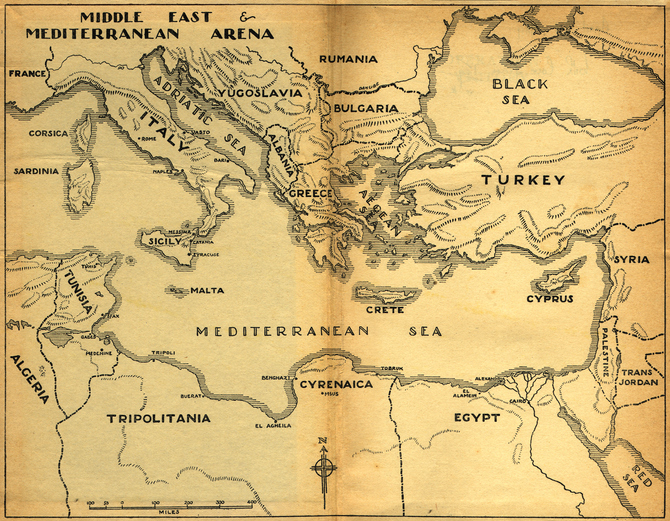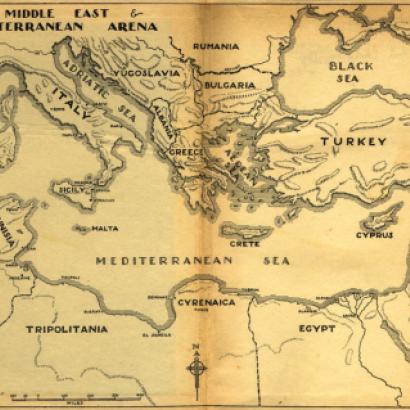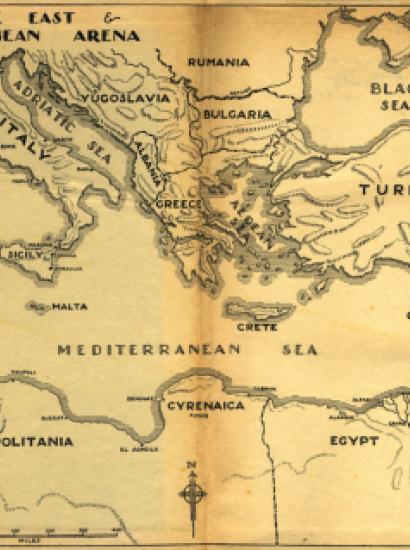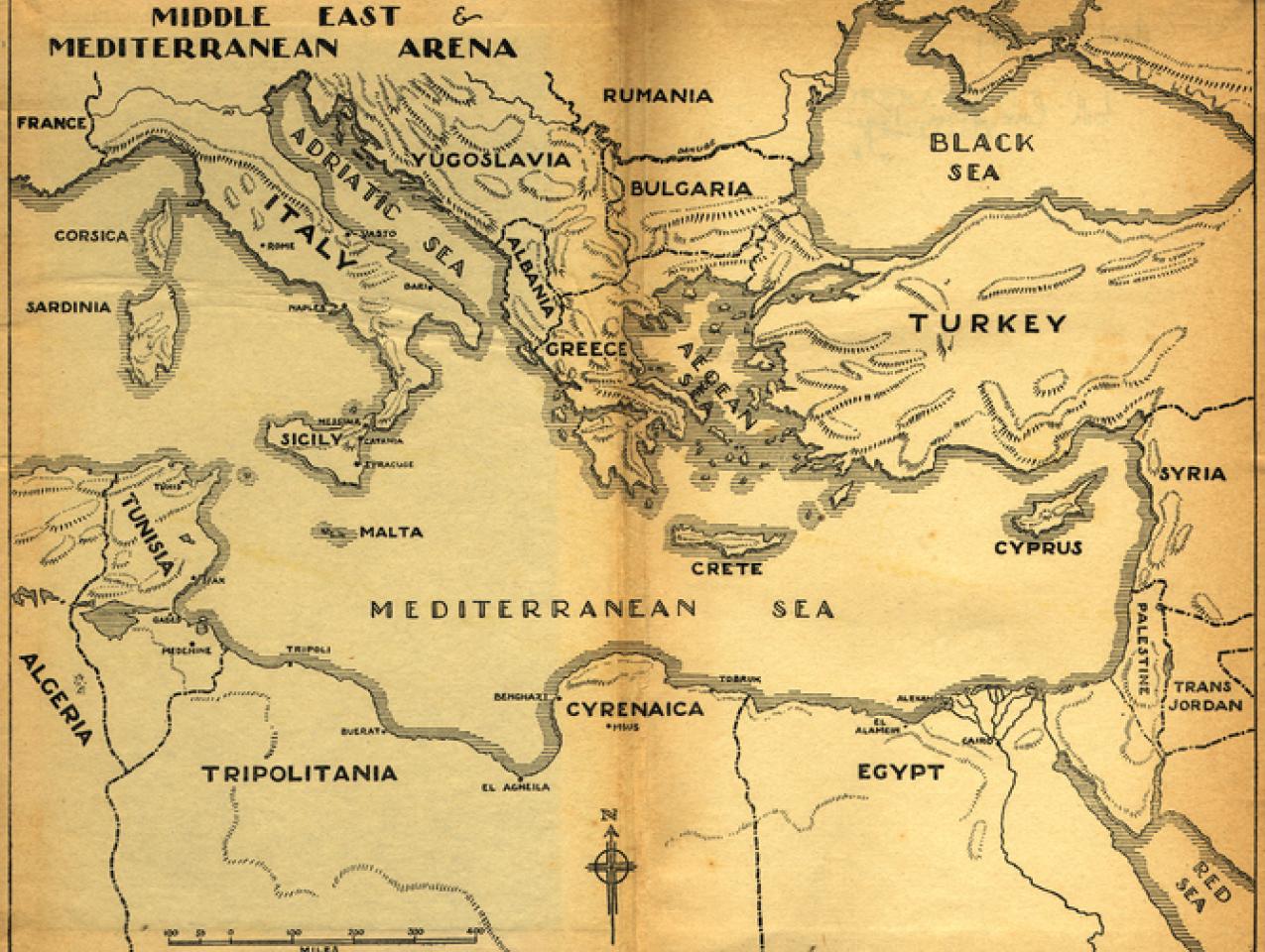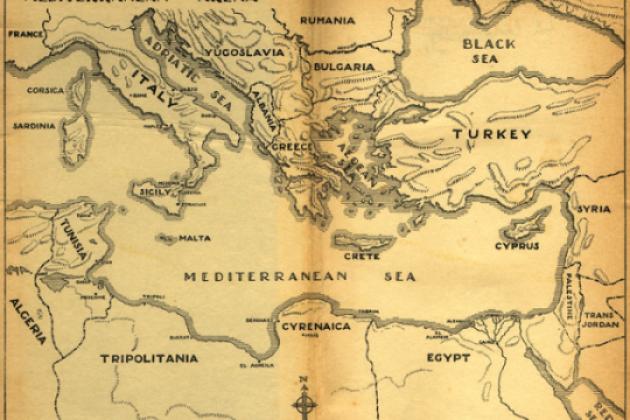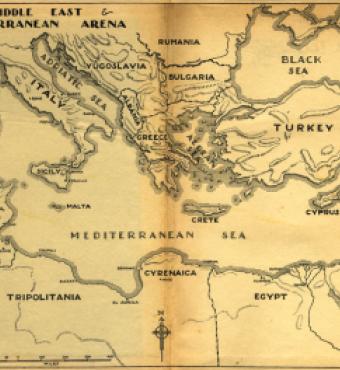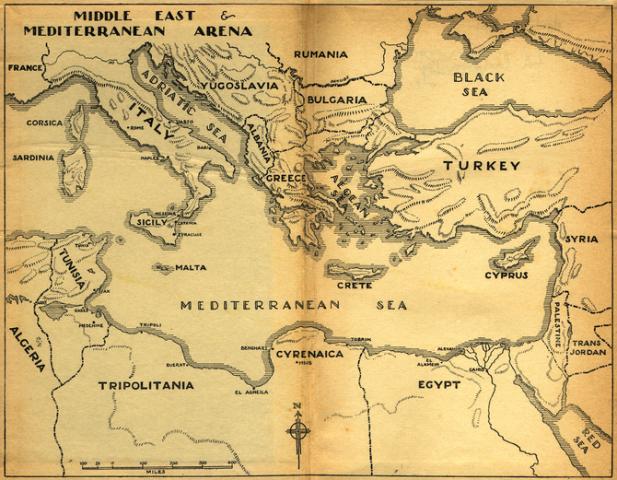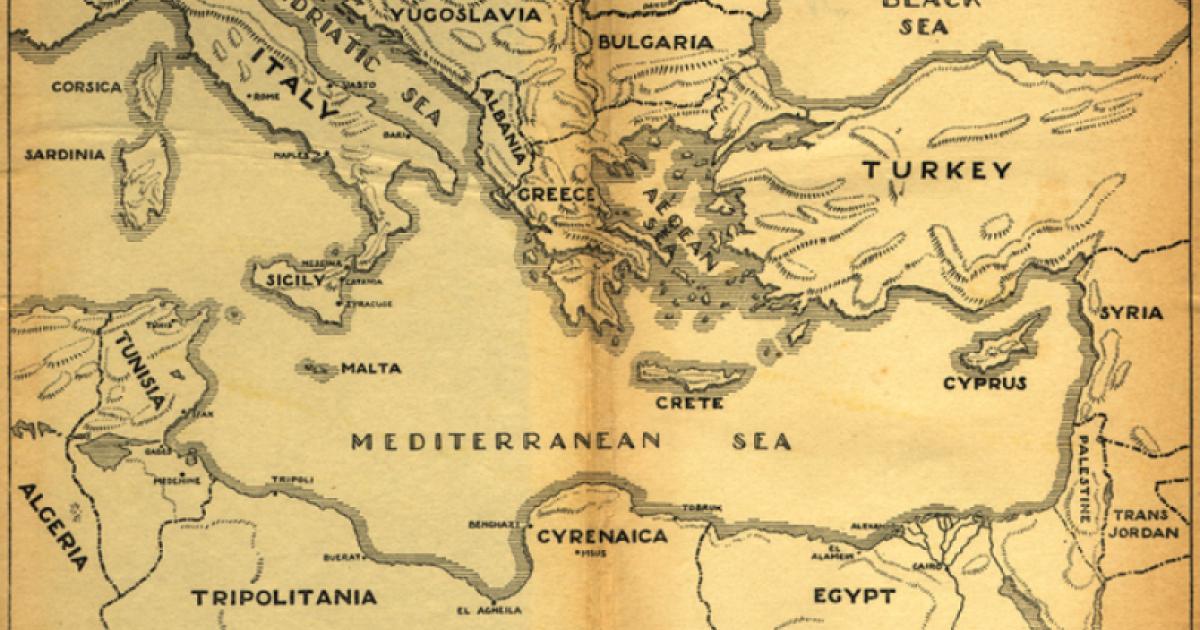The United States has a long history with the Mediterranean littoral. The first American overseas military expedition, the war against the Barbary pirates, took place in the Mediterranean in the first decade and a half of the 19th century. Although U.S. naval operations and Marine expeditions against the North African states of Morocco, Tripoli, Algiers, and Tunis did not immediately end piracy against American vessels, they did signal the willingness of the United States to use military force in the furtherance of its national security interests beyond its shores.
Following this period European powers—most notably Britain and France—controlled the Mediterranean Sea, a dominance acceptable to the United States, at least until World War II brought German submarines and Italian warships to contest control of the area. With President Franklin D. Roosevelt’s decision to support an Anglo-American invasion of North Africa in 1942, the United States returned to the Mediterranean to stay. Airbases and seaports in North Africa and Italy supported the campaign against the European Axis powers, and a number of these facilities remained in American hands after V-E Day.
The Cold War witnessed the pinnacle of American involvement in the Mediterranean region, as the United States and the Soviet Union vied for control of the sea lanes between the Straits of Gibraltar, the Dardanelles, and the Suez Canal. The United States and USSR also courted the support of the littoral states in Europe, North Africa, and the Middle East—the southern tier of NATO and Israel in the case of the United States, and Syria and Egypt in the case of the USSR. The U.S. Sixth Fleet was one of the premier naval commands during this era, engaging in expeditionary operations and airstrikes in Lebanon in 1958 and 1983 and again when its ships and planes participated in freedom of navigation exercises in the Gulf of Sidra and subsequently in Operation El Dorado Canyon in 1986, the air raids against Libya in retaliation for Libyan terrorist actions in Europe.
The end of the Cold War seemed to relegate the Mediterranean once again to a backwater of American strategic discourse, at least until terrorist attacks against the United States in 2001 brought the war against Islamist terrorism to the forefront of national security considerations. Although by this time Libyan leader Muammar Gaddafi had foresworn state sponsored terrorism and had voluntarily dismantled his nuclear program, the Obama administration unwisely supported a multi-state NATO-led intervention in Libya in 2011, resulting in the fall of Gaddafi and the descent of the country into civil war. The Arab Spring also led to civil war in Syria, leading to Russian and Iranian intervention and a mass exodus of refugees into Europe. Economic and political refugees have also flocked across the Mediterranean Sea from Africa to Europe, destabilizing the domestic politics of a number of European Union states. Meanwhile, Turkish President Recep Erdogan is recharting his nation’s course in Mediterranean affairs, a wild card in a region that has one again become an arena for great power competition.
The Mediterranean has always been a crossroads of civilizations, and it will continue to play this role in the 21st century. With its intervention in Syria, Russia is renewing its strategic presence in the region. China is buying its way into the region’s infrastructure. Although another Cold War may or may not be in the offing, the United States ignores these developments at the peril of its national security and the domestic stability of its European allies.







